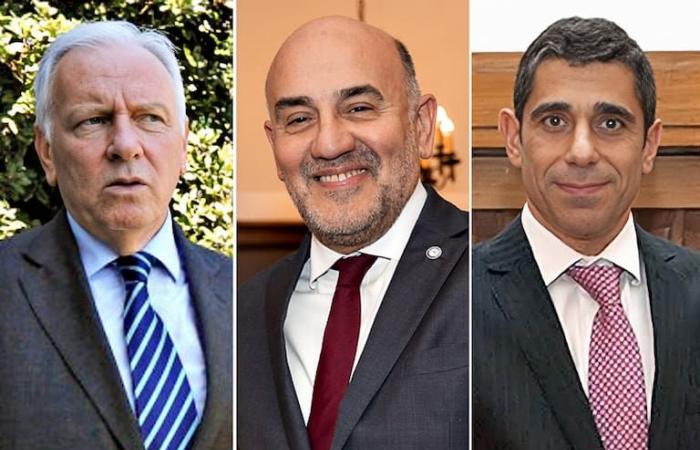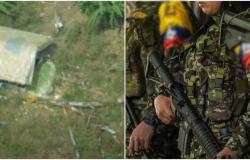Hear
After reporting a “pact of impunity” between politicians and judgesthe block of national deputies of the Civic Coalition announced that he will make a presentation before the Judicial Council so that the conduct of the Criminal Cassation chambers who removed the businessman is investigated and framed Angelo Calcaterracousin of Mauricio Macri, from the oral trial for the case of the bribe notebooks.
“We believe that there is an impunity pact between sectors of Justice and politics – from different parties – so that they do not advance in corruption cases”stated the deputies of the Civic Coalition, in reference to the judges Diego Barroetaveña, Carlos Mahiques and Daniel Petrone.
The judges understood that the 16 payments that Calcaterra made to Kirchner officialsin bags that were delivered to an underground garage of the Hilton Hotel, in Puerto Madero, They were not bribes, but contributions to the electoral campaign. This interpretation allowed Calcaterra to be separated from the oral trial over the notebooks and sent to the electoral justice investigate whether he made undeclared campaign contributions, a minor fault.
“For us, this ruling is institutionally very dangerous since it would exonerate from the criminal case all the businessmen who had paid bribes to public officials. For this reason, we believe that the three judges should be investigated.”the legislators noted.
“The Council of the Judiciary should also analyze the conduct of the judges of this Oral Court in order to know the reasons for the delay in issuing a sentence and concluding the criminal process,” they added.
The announcement was made known by legislators Juan Manuel López, Victoria Borrego, Marcela Campagnoli, Maximiliano Ferraro, Mónica Frade and Paula Oliveto.
Barroetaveña, Mahiques and Petrone They decided in another ruling to analyze whether it is appropriate to apply the same criteria that benefited Calcaterra to three other businessmen who admitted to having made money contributions to Kirchner officials. Are Armando Loson, Hugo Dragonetti and Jorge Balán. If these requests are successful, The trial for the bribery notebooks could be emptied of businessmen who argued in this way and only Cristina Kirchner and her former officials would be judged.
For two years there has been talk in political, business and judicial circles of finding a solution for businessmen that they admitted to the prosecutor Carlos Stornelli and the late judge Claudio Bonadio having made payments to Kirchnerism in the case of the notebooks, according to what was learned THE NATION. There were judicial operators of the Macrismo, who pass the governments and continue weaving networks, who probed alternatives, without success, during the Cambiemos administration, and others who tried to reach the Government of Javier Milei with this concern.
The prosecutor before the Chamber of Cassation, Raúl Pleéand the Financial Information Unit (UIF)which is the body in charge of investigating cases of money laundering, are the only ones authorized to appeal the ruling of Barroetaveña, Petrone and Mahiques with the intention that it be reviewed by the Court.
The idea is that their resources allow the Supreme Court of Justice to review the judges’ decision to consider that in the case of Calcaterra their payments should be analyzed by the federal judge with electoral jurisdiction.l Maria Serviniand not by the federal oral court that will judge other businessmen, Cristina Kirchner and her former officials as part of an organization that collected bribes in exchange for maintaining contracts with the State.
Pleé and the FIU have a period of ten business days to file an appeal against this decision, which expires on July 12, in the middle of the judicial process, so the period is extended to Monday, July 29.
Calcaterra was the owner of the Iecsa company dedicated to carrying out public works during Kirchnerism. In another parallel case, the firm is being investigated for paying bribes to maintain the contract for the Sarmiento Railway underground work. In 2017, Calcaterra sold the company to Marcelo Mindlin of Pampa Energía, but investigations against Macri’s cousin remain open.






